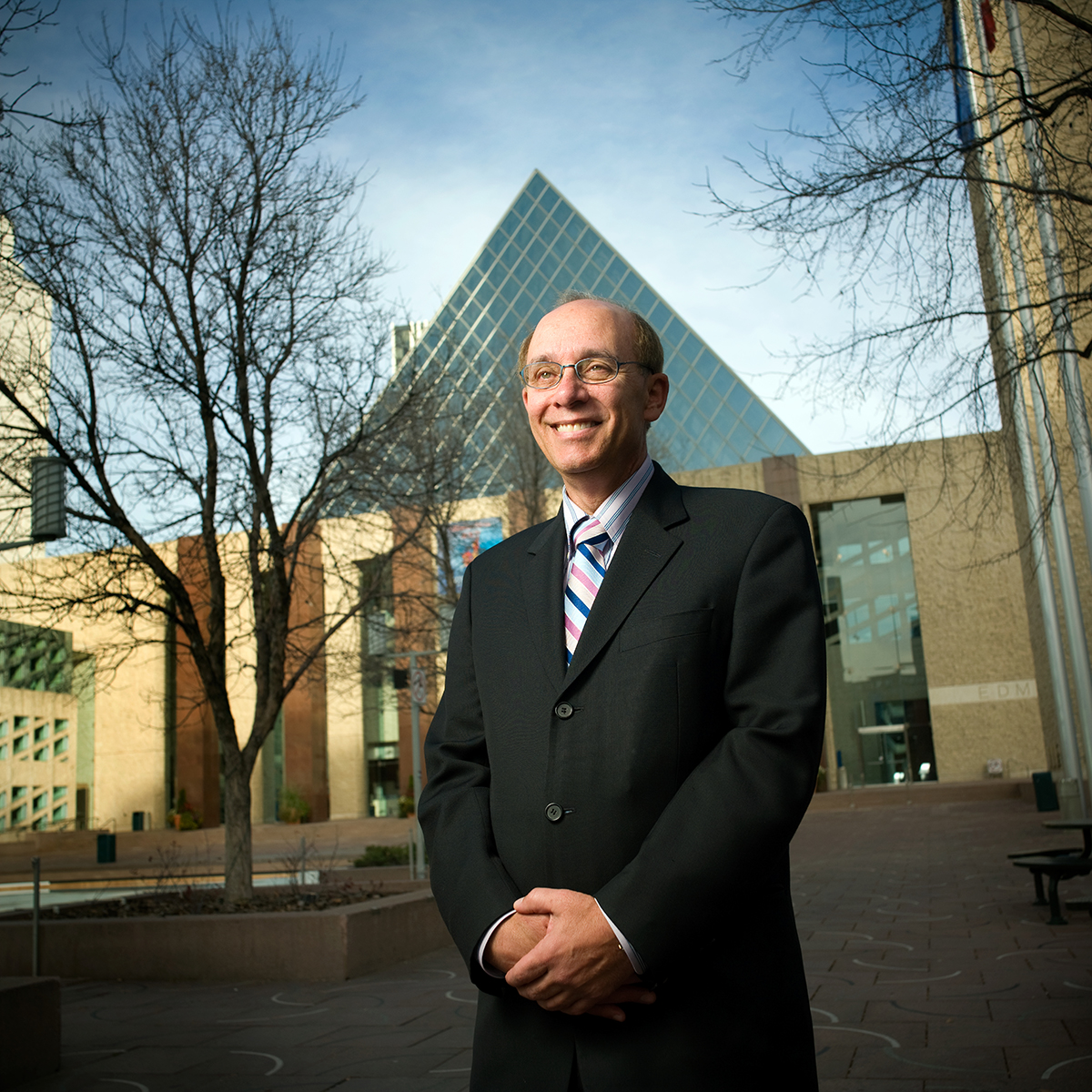STEPHEN - Portraits of Diabetes

STEPHEN
Type 2 diabetes-diagnosed 2002
The evolution in the next phase of controlling diabetes-Edmonton is right in the center of it.
When Stephen Mandel was mayor of Edmonton, his mind was occupied with more than attending countless meetings and making important decisions for the city. He was also watching his blood-sugar levels and maintaining his health, since just a few years prior he had been diagnosed with type 2 diabetes.
Even though he was very busy, treatments worked well for him and his management of his condition through the years has gone smoothly with a consistent focus on an active lifestyle. Being physically active has always been important to Stephen, who is now the chancellor for Concordia University of Edmonton: he plays tennis three mornings a week, works out three days a week and has played baseball on a slo-pitch team for as long as he can remember.
But he's quick to point out that it's not easy for everyone.
"For many people with diabetes, it's a life-controlling disease. I have many friends who are people with diabetes and are far more careful than I am, and it has a major impact on their lives," says Stephen.
Now, 10 years after the Alberta Diabetes Institute opened its doors, Stephen says he's proud to see the role Edmonton has played-and continues to play-globally with regards to diabetes research.
"You know, there's far more being done than us lay people know. And the evolution in the next phase of controlling diabetes-Edmonton is right in the centre of it," he says. "I'd like to see more invested in it."
Stephen says as mayor he deeply believed in the work that was happening at the University of Alberta, and saw it as a driving force in the community. It's why he made sure the city and the university had a strong relationship. "As a matter of fact, when I was no longer mayor, I went and spoke with a bunch of university professors about co-operation between cities and universities and I was shocked to hear it isn't the norm-that most cities and universities are in conflict."
In 2014, he became health minister for the Alberta government-a position he held for a year-and in his role, he says, he saw investing in research of all kinds as fundamental. While he's impressed by the diabetes research done in the last 10 years, he anticipates the next decade will hold surprises that he can't yet imagine. He believes there may be a cure, but he also hopes to see more measures to promote healthy lifestyles-especially those focused on physical fitness-put in place.
Stephen worries that younger generations are losing the desire to be physically active and hopes society will see a shift back to more active days. "I think we have to change how we do things and there's a real need to begin to socialize young people into putting their phones down and going to the big baseball field. I think that we've really lost sight of physical education and physical fitness," says Stephen.
The Alberta Diabetes Institute continues to push the limits of what we know, while our population health research drives us in the direction of new approaches for preventing and treating diabetes.
Photography: Richard Siemens Writer: Caroline Barlott Editor: Sasha Roeder Mah Creative Director: MJ Fell







